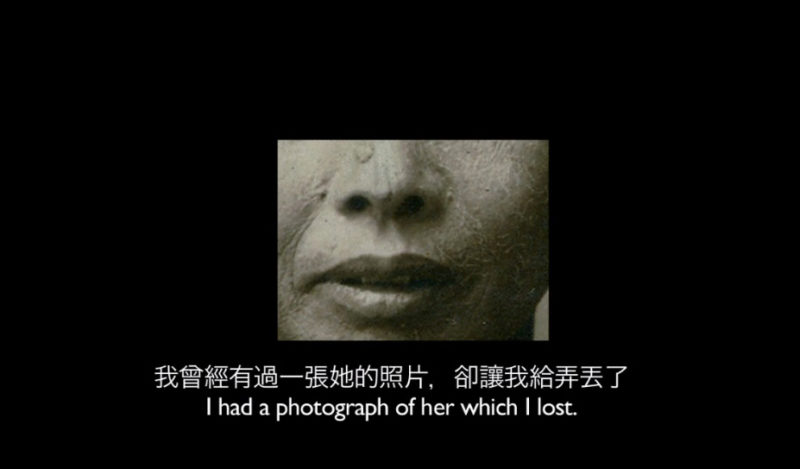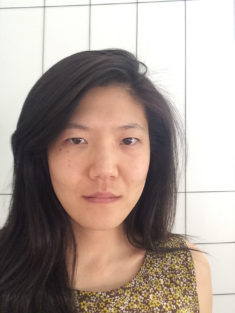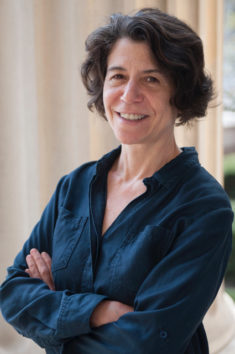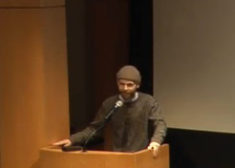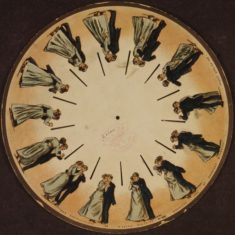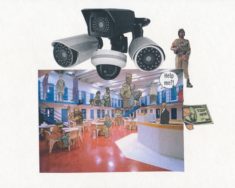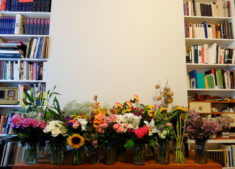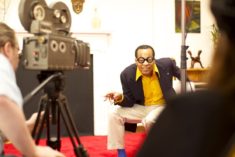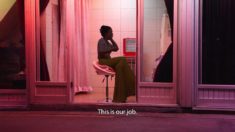About the event
This event features a selection of films and videos by Caroline Key and Shelly Silver; each uses forms of occlusion to recover vulnerable, untranslatable, or invisibilized layers of social material.
In her 2007 film, Speech Memory, Key interviews her father about his father, a deaf Korean, born in Japan during its occupation of Korea, who only learned written Japanese and Japanese Sign Language. Written prompts appear in English over a black screen, and the camera focuses on her father, who responds to the prompts in sign language. Key and her father discuss other topics in Korean, as an English translation appears on a black screen. In each instance, a layer of information is withheld but transmitted. When Key asks her father why his father’s family moved to the country that was occupying their home country, he says, “they probably lived as we do in America."
Key’s Grace Period (co-directed with KyungMook Kim, 2015) records the Yeongdeungpo district sex workers in Seoul and their collective resistance to government crackdown on their labor. Evoking the risk involved in appearing on camera but also the threat of their invisibility, the women’s figures are digitally obstructed in shadow, as they narrate their stories off-camera.
Silver’s videos often produce fictional characters behind a series of ostensibly documentary images. In What I’m Looking For (2004), a woman posts on an internet dating site that she wants to meet people “who want to be photographed in public revealing something of themselves.” She meets various people--all men--who respond to the prompt with various levels of transparency, desire, and opacity. In Touch (2013), a man returns to Chinatown after 50 years to care for his dying mother. Like the woman in What I’m Looking For, he is never onscreen, but the camera records what he sees. He speaks Mandarin in voiceover and through soundless intertitles that appear in both Mandarin and English. Over an image of a young Chinese girl, he provides three different meanings for the word “concealed”:
“safe, guilty, disappeared.”
After the artists screen their work, they will take part in a moderated conversation, framed and periodically interrupted by a live feed of video selected by both the artists and the audience.
This event is part of the series “Recording and Performing: Documentary, Liveness, and Apparatuses of Capture in Artists’ Cinema.” It is presented as part of Mediating the Archive, an interdisciplinary research group that focuses on how archival studies dovetail with the scholarly and artistic legacy of queer activism through visual art, film, digital media, and dance. The group is supported by the Seminar on Public Engagement and Collaborative Research. For more information, email [email protected].
Accessibility:
The Martin E. Segal Theatre at the CUNY Graduate Center is on the ground floor and is wheelchair accessible. The bathrooms have grab bars and room for a powerchair. The bathrooms on the ground floor are gender-segregated. There is a non-gender-segregated bathroom on the seventh floor of the building, which can be accessed via the elevators in the main lobby; you will be asked to show ID at the front desk in order to enter the elevators. This space is not scent-free, but we ask that attendees come fragrance-free. The post-screening discussion will be archived.
If you require ASL interpretation, CART, audio description for film, or have any other access needs, please contact Jordan Lord at [email protected] by 3 pm on Friday, March 17th, and we will do our best to accommodate.
Cosponsored by the Film Studies certificate program
